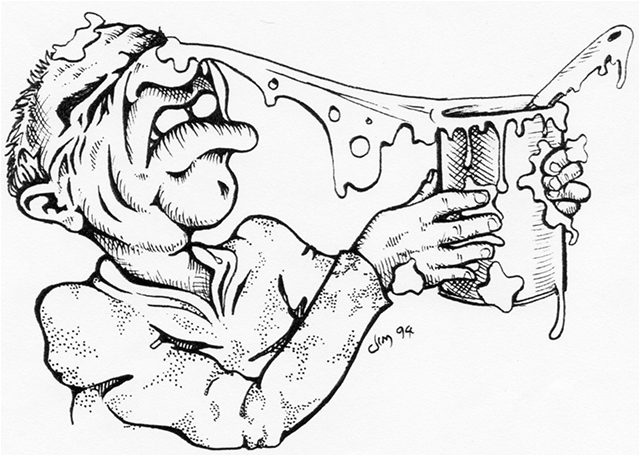Glues and Solvents
Glues and Solvents
What are they?
Household products like glue, thinners, petrol, butane gas and anything in an aerosol can. The solvents used in contact adhesives and similar products evaporate at room temperature, giving off fumes which can be inhaled. Someone sniffing an aerosol is inhaling the pressurized gas which propels the product out of the can. An average home will contain about fifty sniff-able products.

Glues and solvents
What do they do?
Inhaled fumes rapidly enter the bloodstream (and then the brain) through the lungs. The effects start with disorientation and dizziness, and can lead on to feelings of euphoria and a sense of unreality – even hallucinations. Sometimes a group of people using together will experience a shared hallucination. The effects wear off after 15 – 30 minutes leaving the user feeling drowsy and unable to concentrate. This hangover can last for up to a day, and may include headaches.
What do they do to my body?
Heart rate and breathing slow down, speech can become slurred, some people experience blurred or double vision. Most users experience dizziness, drowsiness and sometimes nausea. Repeated use or deep inhalation can cause confusion, loss of control and even loss of consciousness. Long term defects of solvent and gas inhalation include kidney and liver damage, and damage to the central nervous system (including the brain). Often the products containing the solvent contain other chemicals that can be harmful.
What are the risks?
Some products contain chemicals that are irritant or sometimes even corrosive. Many industrial solvents are carbon based, like our bodies. Take note of any warning symbols on the packaging. Most of the products are also inflammable. Smoking or using matches or a lighter could easily lead to an accident. Sniffing glue out of a plastic bag can cause suffocation. If you pass out the bag can remain stuck to your face. If you throw up while you’re unconscious this could also cause you to choke. Never leave someone who’s been sniffing solvents or aerosols on their own – if they do choke, they’ll need your help quickly.
Many of the sudden deaths caused by solvent sniffing are due to inhaling butane gas – lighter fuel. The liquid gas cools tissues in the throat, which causes them to swell. If your throat swells up you can’t breathe. Other aerosols contain particles of the product that is being sprayed – like deodorant, hairs pray or furniture polish. If you spray these into your throat they will coat the inside of your lungs, and cause suffocation.
Someone wanting to sniff from an aerosol must filter these particles out before they can inhale the gas. Where someone sniffs can be a danger too. Busy roads, railways, building sites, canals and rivers become extremely dangerous if you’ve been sniffing solvents. You could fall in a river and not remember how to swim. You might think there’s plenty of time to cross the road, but there’s not. If you’re going to use these substances then make sure that somebody else is with you. If you do have any difficulties, help can be given much more quickly (as long as the other person isn’t in the same state).
Most people start sniffing solvents or aerosols ‘just to see what it’s like’. Nobody ever expects to come to harm, or to have a problem. If you know that you’re not feeling happy – maybe you feel alone, stressed, depressed, bored or something’s happened to you – then talk to someone about it. Some people get into sniffing regularly because they like the buzz better than being straight. They don’t think of it as ‘a problem’, it’s just something they do. Solvents and aerosols are just like other drugs. They change how you feel, but they don’t take problems away.
